Behind the News
Behind the News: All the backstories to our major news this week
Published
6 months agoon
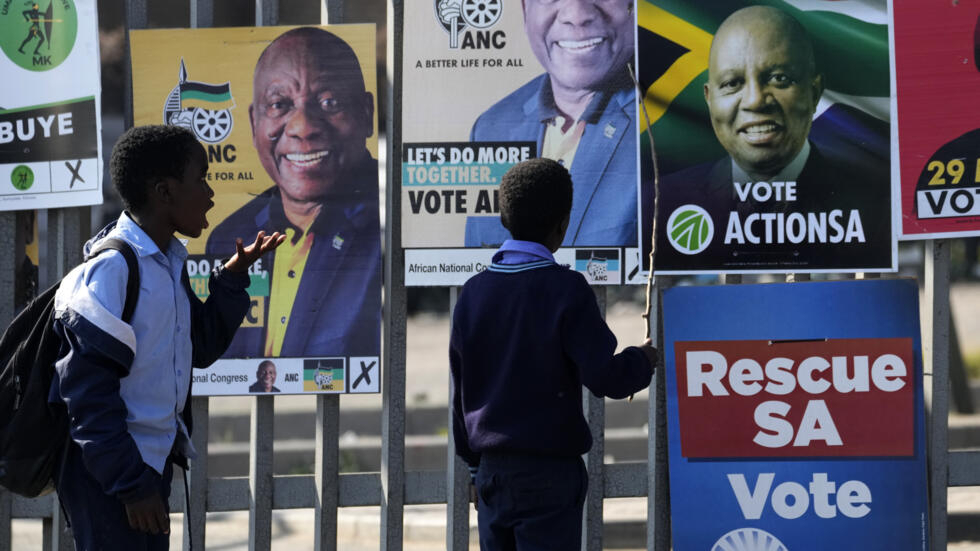
Over the past week, there have been many important stories from around the African continent, and we have served you some of the most topical ones.
Here is a rundown of the backstories to some of the biggest news stories in Africa that we covered during the week:
Congo’s President Tshisekedi finally constitutes cabinet but challenges remain
A new government was announced by the Democratic Republic of the Congo (DRC) on Wednesday, bringing an end to over five months of extreme uncertainty. With President Felix Tshisekedi’s reelection in December, there had been a protracted standoff. However, this impasse ended on Wednesday with the announcement of the appointment of the new cabinet. Ten days after a coup attempt was thwarted, the government was formed.
Some of the appointments have been tagged as crucial to the country’s political set-up. For instance, Guy Kabombo Muadiamvita’s appointment as defence minister is targeted at a pivotal role given the coup attempt less than two weeks ago and the conflict that is raging between the Congolese army and Rwanda-backed M23 (March 23 Movement) rebels in the mineral-rich east of the country. He also appointed Judith Suminwa to be the first female prime minister of the DRC last month and named his former chief of staff, Vital Kamerhe, who was found guilty of corruption, as speaker of parliament earlier this month. He has lowered the number of ministers in the new government from 57 to 54, defying pressure to save expenses.
Having been declared winner of a disputed presidential election, which some, including the influential Catholic Church, had challenged. Tshisekedi pledged to transform his nation into “the Germany of Africa” at the start of his first term in office in 2019, expecting to boost the nation’s economy and generate jobs for the populace in a resource-rich but impoverished nation. Although he failed to reform such a large country in his first four years in office, he now has a second shot after emerging victorious in a wild election.
Until a few years before the 2018 election, Mr Tshisekedi had no experience in high-level DRC politics. His relationship with Étienne Tshisekedi, the late opposition leader, made him more well-known but a recently reported coup attempt linked with some American citizens might further compound political stability. The country remains a hotbed of insecurity – due to the significant internal displacement and the rise in violence, war, and instability in the eastern DRC, 25.4 million people—more than 25% of the population—are severely food insecure. Acute malnutrition affects an estimated 2.8 million children worldwide, according to the World Food Programme.
With 2.34 million square kilometres as the second-largest country in the continent and arguably the most blessed with natural resources, it is paradoxical that the DRC isn’t in the league of economic powers in the country nor the East African subregion, with Rwanda, Kenya, and most recently Tanzania raising their economic flags high.
South Africa: ANC’s 30-year parliamentary dominance ends
In a historic election outcome, the African National Congress (ANC) party has lost its parliamentary majority, setting South Africa on a new political trajectory for the first time since the 30 years ago end of the apartheid system of white minority rule. The once-dominant ANC earned about 40% of the vote in Wednesday’s election, far short of the majority it had consistently secured more than 60% of the vote in every election held since 1994 bringing apartheid to an end and placing it under Nelson Mandela’s leadership.
Apart from evident social political and economic decline like the energy crisis which has ravaged its macroeconomic being the most industrious country in the continent, the ANC has also been on a long internal strife and division history. The first instance occurred in the 1930s due to the Conservatives’ victory in the late 1920s, which split the party’s leaders over whether or not to work with the Communist Party. However, there were signs of discontent within the party before the 2007 national conference, after Thabo Mbeki’s constitutional limitation from running for a third term as president of South Africa. The choice of the country’s next president in 2009, hotly contested by Jacob Zuma, the ousted vice president at the time, would have been greatly influenced by Mbeki’s ability to win a third term as party president.
uMkhonto we Sizwe (MK), a new party formed by former president and ANC leader Jacob Zuma, managed to win 14.71%, taking votes away from the ANC, while the Democratic Alliance (DA), the largest opposition party, obtained 21.63%. According to the country’s electoral commission, which has counted 99.9% of the votes, the ANC received 40% of the popular vote during the May 29 election, followed by the Democratic Alliance (DA) at 21.8% and the Marxist Economic Freedom Fighters (EFF) with 9.5%.
Voters in South Africa choose 400 members of the National Assembly, which is composed of province legislature representatives. Parties are given seats in the parliament through party-based voting. The winning party will subsequently be granted the highest authority in the nation when the parliamentarians choose the president. The ANC’s current leader, Cyril Ramaphosa, 71, will need to negotiate a coalition to retain dominance, which will begin a protracted period of talks and uncertainty over the country’s political direction. This is in contrast to the party’s hero, Nelson Mandela, who freely formed a power-sharing coalition to bridge distrust with rival parties in the early years of South Africa’s democracy.
Inside US-Africa sanctions rampage
The United States during the week announced penalties on two businesses in the Central African Republic that were connected to both illegal mining operations and the Wagner mercenary group in Russia. Washington claimed the firm and its businesses had “established a vast security and business network” in the African nation, accusing Wagner of supporting what it called Russia’s “malign activities” there.
According to the statement, all of the companies’ interests and assets within the nation, as well as any possession or control by Americans, are barred by the sanctions. We have levied sanctions on numerous international organizations and individuals who support the Wagner Group.
Wagner has served in the military and politics in several West African nations, most notably Mali and Libya in more recent times. 500 civilians are alleged to have died in May 2023 in Mali as a result of the mercenary group’s operation against al-Qaeda militants who were destroying Moura. International politics surround Wagner’s increasing engagement in West Africa; China dominates the continent regarding international economic relations, while Washington and Russia vie for Africa’s soul.
Five Ugandan governmental figures, including the Speaker of Parliament and the most recent Deputy Chief of Defence Forces, were also sanctioned by the US during the same week. This action in Kampala increases the demand to act about the officers’ integrity and human rights record.
The US remain keen to reinstall its waning influence in the continent and has ushered an array of recent diplomatic activities. It recently also accused Russian military personnel of entry into its military air base in Niger, according to a senior US defence official cited by Reuters.
Despite the odds, AfDB hints at better growth for African economies
Although many African countries are currently experiencing stress, the African Development Bank (AfDB) has hinted that the continent’s economy is expected to develop faster than 3.1% in 2023, reaching 3.7% this year and 4.3% the following year. The bank hopes to increase infrastructure investment with support from the IMF. The AfDB President, Akinwumi Adesina at an annual meeting of the bank. “African economies are experiencing great resilience despite the challenges posed by climate change, geopolitical tensions, global inflation, and rising debt, among others.”
Trade, manufacturing, agriculture, and the continent’s human resources make up Africa’s economy but Twenty-one African nations were categorized as either extremely vulnerable to external debt distress as of June 2023, or as having already experienced it. There are still a lot of concerns related to financial distress in the area. Many countries, including Ghana, Zambia, and Chad, have started debt restructuring programs to restore budgetary space and guarantee sustainability. Across the continent, growth is still uneven. West Africa is predicted to develop at a pace of 3.3% this year, while East Africa is predicted to grow at a rate of 1.8% in 2023. It is projected that by 2050, the combined GDP of West Africa, East Africa, Central Africa, and Southern Africa will amount to $29 trillion.
The area has many development-related obstacles. The most current economic assessment for the region projects that Sub-Saharan Africa will grow by 2.5% in 2023, down from 3.6% in 2022. The region’s economy is negatively impacted by the rise in conflict and violence, and climate shocks are likely to worsen matters.
Africa can lead the way in achieving inclusive growth by putting money into developing its people. With a predicted net rise of 740 million people by 2050, the region will have the highest increase in the working-age population of any region during the next three decades. In the upcoming decades, up to 12 million young people in the region will enter the workforce annually, yet as of right now, only 3 million new formal wage employment are generated.
You may like
-


SA football legend Lucas ‘Masterpieces’ Moripe passes away
-
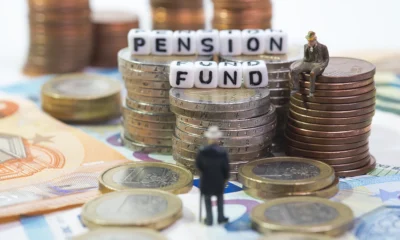

Pension withdrawal hits $2.8 billion after reform
-
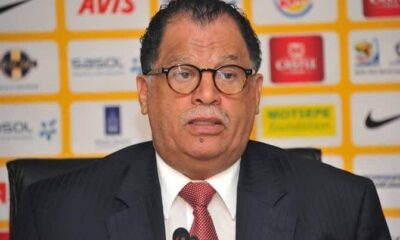

South Africa FA President Danny Jordaan detained. Here’s why
-
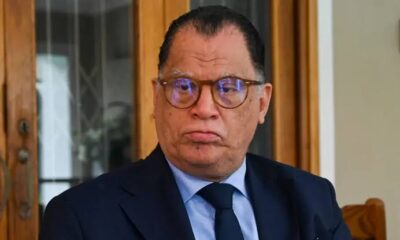

South Africa’s FA president Danny Jordaan arrested on fraud, theft allegations
-
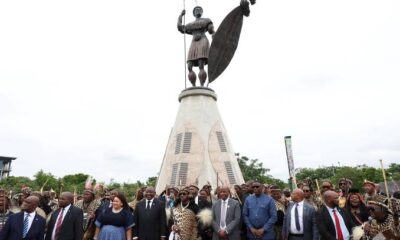

South Africa finally unveils improved King Shaka statue at Durban airport
-
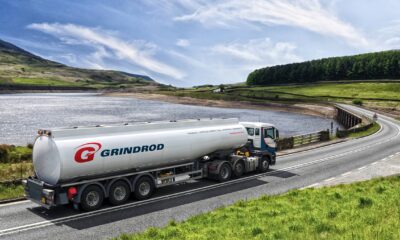

Logistics giant Grindrod suspends Mozambique port activities after border closure
Behind the News
Behind the News: All the backstories to our major news this week
Published
1 month agoon
October 18, 2024
Over the past week, many important stories from around the African continent were published, and we served you some of the most topical ones.
Here is a rundown of the backstories to some of the biggest news in Africa that we covered during the week:
Another look at Africa’s debt crisis
Conversations around Africa’s public debt were on the table during the week as Achim Steiner, administrator of the United Nations Development Programme, stated on Monday that the world’s poorest countries were unable to meet sustainable development targets because they had to prioritise debt payments over investments.
Addressing a gathering in Hamburg, Steiner asserted that the world financial crisis was impeding countries’ ability to accomplish the objectives, which include eradicating hunger and poverty, increasing access to healthcare and education, providing sustainable energy, and protecting biodiversity.
Since the COVID-19 pandemic’s pervasive effects on economies, the majority of the continent’s nations have suffered with both internal and international debt; yet, few have achieved much in the fight for debt restructuring under the G20 framework.
Numerous African nations, including Egypt, Tunisia, Nigeria, Ghana, Zambia, and others, are struggling with significant foreign debt. Together with Zambia and Ghana, Ethiopia will be a part of a thorough restructuring known as the “Common Framework.”
At the opening ceremony of the annual African Union summit in Ethiopia last year, UN Secretary-General Antonio Guterres made the case for changes to the international financial system’s structure to better meet the requirements of developing nations.
Africa’s whole external governmental debt as of 2021 was 726.55 billion USD. The amount of foreign public debt increased from 696.69 billion dollars in comparison to the previous year.
Concerns are being raised by the rising debt levels in Africa, which could not only hinder economic growth but also make repayment nearly difficult for many of these nations. This begs an important question: When does debt stop being beneficial and instead start to negatively impact a nation’s economic performance?
Kenya remains committed to Haiti, but what does it stand to gain?
Kenya will support an international anti-gang effort in Haiti next month by dispatching an additional 600 police officers there. Haiti’s prime minister was in Kenya to expedite the deployment of the military.
At least eleven countries have pledged to send more than 2,900 soldiers to participate in the Multinational Security Support (MSS), led by Kenya.
Kenya, whose participation in international peacekeeping missions is longstanding, declared earlier this year that it would be deploying 1,000 police personnel, citing as a starting point its assistance to a bordering country.
Approximately 600,000 individuals have been internally displaced due to gang conflict, and hundreds of thousands of aspiring migrants have been deported back to Haiti, where approximately 5 million people are facing extreme famine. October marks the end of the mission’s first 12-month term. As gang violence worsened in 2022, Haiti turned for the first time to foreign assistance.
Nevertheless, it failed to identify a leader prepared to assume the helm and numerous foreign governments were reluctant to back the unelected administration in the desperately poor nation.
Kenya gains significant political value by sending its troops to Haiti on the international scene. Kenya has gained international recognition as a trustworthy ally that is eager to assist other nations. The mission opens up various opportunities. Prior to deployment, Kenyan law enforcement forces will receive specialist training and equipment. In the long term, this will increase the force’s capacity. Of course, there are monetary rewards as the participating nations receive allocations of resources. Because troops will receive additional pay, officers are very interested in being deployed overseas.
Cameroon: ‘Healthy’ Biya remains out of sight
Cameroon’s president, Paul Biya can now be likened to the proverbial cat with nine lives as the 91-year-old has remained “healthy” following latest reports of his death during the week. Rumours have been circulating about Cameroonian President Paul Biya’s possible death in a military hospital in France due to his extended absence. This rumour stems from Biya’s prolonged absence following the September China-Africa Summit when he was anticipated to head back to Cameroon almost away.
As of November 6, 1982, Biya, who is 91 years old, has been in office for 42 years. He is the oldest head of state in Africa, the longest-lasting non-royal national leader worldwide, and the second-longest serving president overall. According to rumours, Biya’s oldest son Franck Emmanuel Biya may be named as his replacement for “continuity” in France.
Since its political independence from France and Britain in the early 1960s, Cameroon has only had two presidents. The country is currently dealing with two serious crises: a deadly Boko Haram insurgency in the north and a separatist conflict that has claimed thousands of lives.
President Biya is one of several long-serving African leaders, including Yoweri Museveni of Uganda, who has been in office since 1982, and Teodoro Obiang Nguema Mbasogo of Equatorial Guinea, Rwanda’s Paul Kagame is also gradually evolving into the group.
Things get tougher for embattled Kenyan Deputy President
During the week, the deputy president of Kenya was impeached by the National Assembly due to charges of corruption and abuse of power. In a vote held Tuesday night, lawmakers decisively decided to remove Rigathi Gachagua from office. The Senate will now decide what will happen to the deputy president.
Parliament adopted a proposal to remove Kenya’s deputy president from office, and on Wednesday, the matter was brought to the Senate for consideration. The National Assembly heard a nearly ninety-minute defence of troubled deputy president Rigathi Gachagua and his allies prior to the vote.
A surge of protests targeting President Ruto’s government has been occurring in Kenya over the last four months due to accusations of corruption made by certain lawmakers and government officials. High taxation and the parliament’s purported inability to act independently of the president were other issues that Kenyans objected to. Gachagua refutes the accusations made by certain lawmakers, who claim that the deputy president assisted in planning rallies against the government.
He supported Ruto in his election victory in 2022 and assisted in obtaining a sizable portion of the vote from the populated central Kenya region. Gachagua, however, has mentioned feeling marginalised in recent months, despite extensive claims in the local media that he and Ruto have strained political ties.
After widespread protests over unpopular tax increases in June and July that claimed more than 50 lives, Ruto sacked the majority of his cabinet and appointed members of the main opposition.
Gachagua infuriated many in Ruto’s coalition by comparing the government to a business and implying that people who supported the coalition had first claim to development projects and jobs in the public sector. Ruto has not yet publicly commented on the impeachment proceedings.
Behind the News
Behind the News: All the backstories to our major news this week
Published
2 months agoon
October 3, 2024
Over the past week, many important stories from around the African continent have been published, and we have served you some of the most topical ones.
Here is a rundown of the backstories of some of the biggest news in Africa that we covered during the week:
Musings on CBN rates across Africa: Ghana, Nigeria, and South Africa
During the week, many African countries announced monetary policy decisions. The Central Bank of Nigeria decided unanimously on Tuesday to raise its benchmark interest rate by an additional 50 basis points, to a new record high of 27.25%. This is the sixth hike in a row this year. The decision was made in an effort to reduce inflation, strengthen the naira, and draw in capital. Governor Olayemi Cardoso reaffirmed the bank’s commitment to controlling inflation and underlined how several rate hikes have contributed to its moderation.
Nigeria’s West Africa neighbour followed suit on Friday as the Bank of Ghana reduced its benchmark monetary policy rate by 200 points to 27% at a normal meeting. With inflation having slowed and disinflationary pressures mounting, this is the first decline in eight months and the steepest since March 2018. August 2024 saw a fifth consecutive month of decline in Ghana’s annual consumer inflation, which was still much higher than the central bank’s medium-term target range of 6% to 10%. The country’s annual inflation rate dropped to a nearly two-and-a-half-year low of 20.4% from 20.9% in July.
A week prior, as anticipated, the South African Reserve Bank decreased its benchmark interest rate by 25 basis points to 8% after holding seven consecutive meetings at a 15-year high of 8.25%. As price pressures decreased, the SARB is loosening policy for the first time since the epidemic in 2020
As monetary varying shifts across the continent continue, African nations are still facing numerous severe shocks and significant structural challenges, such as rising food and energy prices brought on by geopolitical tensions like Russia’s invasion of Ukraine, climate issues that impact agriculture and energy production, and ongoing political instability.
Africa’s real GDP growth slowed to 3.1% in 2023 from 4.1% in 2022 as a result of this difficult climate. With growth predicted to reach 3.7% in 2024 and 4.3% in 2025, the economic picture is projected to improve going ahead, underscoring the resilience of African countries.
Zambia and its post-drought plans
Zambia’s finance minister, Situmbeko Musokotwane stated on Friday that the nation intends to quickly recover from its worst drought in living memory and cut its budget deficit in half the following year.
The minister stated in a budget address that the copper producer hopes for a 6.6% growth in 2025, as opposed to a projected 2.3% increase in 2024. The country is aiming for a speedy recovery. as the government crop assessment data shows that over nine million people are affected in 84 of the 117 districts after suffering through the driest farming season in over forty years, which has led to considerable crop losses, an increase in livestock deaths, and worsening poverty,
Real GDP increased gradually between 2022 and 2023, from 5.2% to 5.8%. The supply side was driven by mining and quarrying, wholesale and retail commerce, and agriculture; the demand side was driven by consumer and business spending. Food prices, transit expenses, and the nominal exchange rate are the key drivers of inflation, which is expected to remain elevated and reach 11.0% and 10.9% at the end of 2022 and 2023, respectively.
The economic challenges faced by Zambia are exacerbated by the drought, especially when considering its debt load. Its debt restructuring talks under the G20 Common Framework have progressed far more slowly than was originally anticipated when the Common Framework was first proposed.
In 2017, Zambia was placed under debt distress, and as a result, non-concessional lending from multilateral development banks was discontinued. It’s possible that by overestimating sovereign risks, the main credit rating firms exacerbated the debt crisis and dealing with a post-drought crisis might just be another “too high hurdle”
As the World Bank and Uganda LGBTQ saga continues
The World Bank is taking more action in support of Uganda’s LGBTQ community. The global lender announced on Wednesday that it is implementing steps to guarantee that lenders to Uganda are not subjected to discrimination due to a severe anti-gay law. According to a World Bank representative, both new and continuing projects would be subject to the procedures, which also include an impartial monitoring system to guarantee compliance.
Same-sex partnerships are forbidden and punishable by life in prison; similarly, anyone convicted of “aggravated homosexuality” faces the death penalty. The Anti-Homosexuality Act (AHA) was passed by Uganda, a largely conservative nation, in May of last year and it has led to considerable Western censure and US penalties.
Other than Uganda, several African nations have strict laws that discriminate against individuals who identify as LGBTQ. Hakainde Hichilema, the president of Zambia, issued a warning in March to supporters of the LGBTQ movement to stop endorsing homosexuality. He also asked that Zambia “maintain laws that abhor alien orientations like gayism and lesbianism.”
South Africa, which has a constitution that forbids discrimination based on sexual orientation, was the first and only African nation to legalise same-sex marriage in 2006. Some African nations, such as Angola, Mozambique, Botswana, Lesotho, Mauritius, and Seychelles, have laws that are favourable to the continent’s population but Uganda appears to be unbothered or tempted despite the many causes and costs of its anti-gay stand.
Ahead of Tunisia’s presidential election
During the week, another Tunisian presidential candidate Ayachi Zammel was convicted and sentenced to six months imprisonment for using “fraudulent certificates” as opposition voices in the North African country continue on attack as President Saied positions himself for what is likely to be a reelection, as all but one of the opposition candidates are either incarcerated or have had their eligibility ruled invalid by the Tunisian electoral commission.
On September 19, a third candidate who had received the election commission’s approval was sentenced to 20 months in prison. Saied, who is currently running for reelection for a second five-year term, was originally elected in 2019 as an anti-establishment candidate who pledged to combat poverty and eradicate corruption. However, in 2021 he declared that he would rule by decree after overthrowing Mohamed Ennaceur and the elected parliament, a move denounced as a coup by the opposition and the international community.
Additionally, he has deployed more oppressive strategies, which may indicate that he is not confident in his ability to win with conviction. His severe actions could indicate a new stage in Tunisia’s democratic backsliding and foreshadow more crackdowns and turmoil during an inevitable second term.
Meanwhile, concerns exist over potential voting turnout as well. Under Saied, Tunisia has conducted three elections, with dismal voter turnout in each. Less than one-third of voters cast ballots in favour of a new constitution that solidified Saied’s power and overthrew the 2014 charter in July 2022. After Saied dismissed the previous legislature in December 2022, only 11% of voters cast ballots for new members of parliament, which is among the lowest turnout percentages ever recorded in a national election worldwide. The next December, Saied called elections for a new second house of parliament, repeating this dubious performance.
EDITOR’S PICK


IMF mission concludes 4th loan program assessment in Egypt
Following the completion of a recent visit to Egypt, the International Monetary Fund (IMF) has announced that its mission had...


Mali’s junta names spokesman Abdoulaye Maiga new Prime Minister
A day after dismissing Choguel Maiga for criticising the government, Mali’s governing junta named its spokesperson, Abdoulaye Maiga, as Prime...


Brazilian meatpacker JBS invests $2.5 billion in Nigeria, builds six facilities
Brazilian meatpacker JBS says it has inked a memorandum of understanding with the Nigerian government for a $2.5 billion investment...


China’s Xi meets with Morocco’s Crown Prince
Morocco’s official media reports that Chinese President, Xi Jinping, visited Morocco briefly on Thursday. According to Morocco’s MAP, Crown Prince...


65% of Nigerian households lack money for healthy food—Survey
A survey conducted by the National Bureau of Statistics (NBS) has revealed that around 65% of Nigerian households, which is...


Ghana partners with The Gambia to provide free roaming services
Ghana and The Gambia are in the process of launching free roaming services that will enhance a West African connectivity....


Zambia: APP leader lampoons PF over pledge to reverse forfeited properties
Leader of one of Zambia’s opposition parties, Advocates for People’s Prosperity (APP), Mwenye Musenge, has criticised the Patriotic Front (PF)...


Ghanaian winger Fatawu out for season with ACL injury
Ghana and Leicester City winger, Abdul Fatawu, has been ruled out of the rest of the EPL season after suffering...


DRC authorities arrest six over break-in at Lumumba’s Mausoleum
Police in the Democratic Republic of Congo (DRC) say six people have been arrested over a break-in and vandalism at...


Finnish court imprisons Nigeria’s Simon Ekpa for aiding terrorism
Simon Ekpa, a Nigerian separatist leader based abroad, has been placed under detention by the Päijät Häme District Court...
Trending
-

 Metro2 days ago
Metro2 days agoWanted Zambian MP who escaped from prison custody captured in Harare
-

 Sports2 days ago
Sports2 days agoSA football legend Lucas ‘Masterpieces’ Moripe passes away
-

 Metro1 day ago
Metro1 day agoNigerian Senate confirms influx of terrorists from Mali, Burkina Faso into the country
-

 Culture2 days ago
Culture2 days agoMiss SA opens up on why she withdrew from Miss Universe pageant


